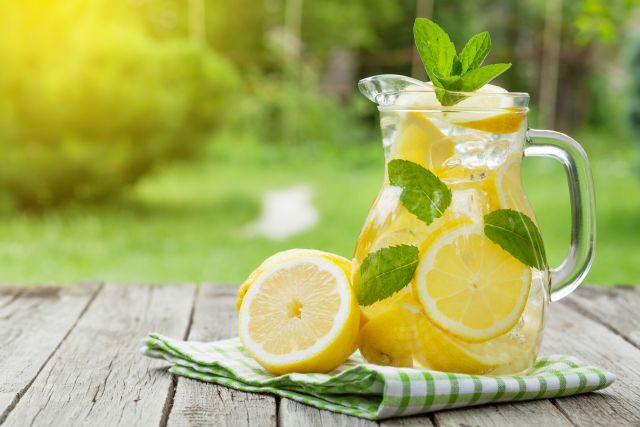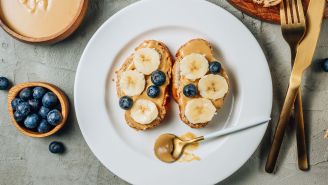Backyard barbecues, afternoons spent poolside, and days at the amusement park just wouldn’t be the same without ice-cold lemonade. Unfortunately, the official beverage of summer is terrible for your teeth. The only way to fully avoid the dental health risks of lemonade—or any other sugar-sweetened beverage, for that matter—is to choose plain water instead.
But if you have an irresistible hankering for that tart, sugary treat, here are some simple tips for safer sipping.
Avoid excessive sugar
Whether yours is fresh-squeezed or store-bought, most lemonades contain loads of sugar, which can lead to cavities. After sipping a glass, swish some clean tap or bottled water around in your mouth. This will help wash away some of the sugar left on the surface of your teeth. To really reduce the amount of sweet stuff, you can always make your own low-sugar lemonade at home.
Beware of acid and erosion
Lemon juice is high in citric acid, which can damage your enamel, the hard outer part of your teeth. Lemon juice has one of the lowest pH levels of all fruit juices, meaning it is more acidic. Its pH can range from 2.0 to 2.6 (on a scale of 0 to 14, pure water being a neutral 7). If the environment in your mouth drops below a pH of 5.5, enamel can be eaten away. Erosion is not reversible once it occurs.
One way to lessen the impact of acid it to use a straw. Typically, when you take a drink, the liquid sloshes around in your mouth, soaking your teeth. Sipping on a straw can help move lemonade past your teeth and to the back of your mouth, limiting your teeth’s exposure to the acid. Brushing your teeth after an acidic drink can also help, but be sure to wait at least an hour after eating or drinking. Acid can soften enamel and brushing too soon after consuming something acidic can cause damage.
Stop chewing ice
Sure, it’s made of water but chewing on something as hard as ice is bad for your teeth. This can lead to problems like painful chips, cracks, and broken dental appliances. Break your ice-chewing habit and just say no to the crunch. Instead, let ice melt and enjoy the hydration.
Concoct your own drink
While it’s easier to make a pitcher of lemonade using a powder or frozen concentrate—or to just open a bottle of a premade drink—it’s rarely the best option for your dental or overall health. By making your own, you’ll be able to cut the sugar and control the acidity of your drink.
For sweetness and flavor without added sugars, consider using fresh produce or herbs in your lemonade. Puree and strain any fruits before combining with water and lemon juice. You can try watermelon, cucumbers, or any type of berry. Top off with some chopped pieces of whatever fruit you choose, as well as a sprig of fresh mint, basil, or rosemary.
Remember healthy alternatives
An occasional glass of lemonade is not going to cause a cavity, erode your teeth, or derail any health goals. But if you’re reaching for this sweet treat on a daily basis, it’s best to cut back and substitute with other options.
The best option is—you guessed it!—drinking more water. You can start gradually but work towards the goal of replacing daily lemonade and other sugar-sweetened beverages with water. If you still crave a citrus flavor, you can have the best of both worlds by squeezing a small wedge of lemon or lime into your water.
Medically reviewed in July 2019






